
Digital exams reflect the way students learn and helps develops future workplace skills
Effectively delivered, well-designed assessments are crucial for students to demonstrate what they have learned and what they can do.
At AQA, we believe that now is the right time to start transitioning towards fully digital exams in some subjects which is why we have published our report Making it Click: The case for digital exams in England.
We came to this conclusion after years of academic research, talking to students, parents, educators and the general population.
The potential opportunities digital exams offer are huge. But we are aware of the need to move at a sensible, well-considered pace.
While paper-based exams are still useful assessment tools, and will remain in use for some time, the range of media available today means we should broaden methods accordingly.
Continuing to use tools that have remained pretty much unchanged for a century while the world evolves means the benefits of an increasingly digital education system remain untapped.
So what are the reasons for moving to digital exams?
Digital exams are better preparation for the real world
Digital assessments offer an opportunity for students to solve more authentic problems that are closer to tasks they will do in the outside world. This will make them more equipped to be a part of our digitally connected world.
Digitising exams presents an opportunity to increase assessment authenticity making them closer to future work experiences as well as developing skills and knowledge required after formal education.
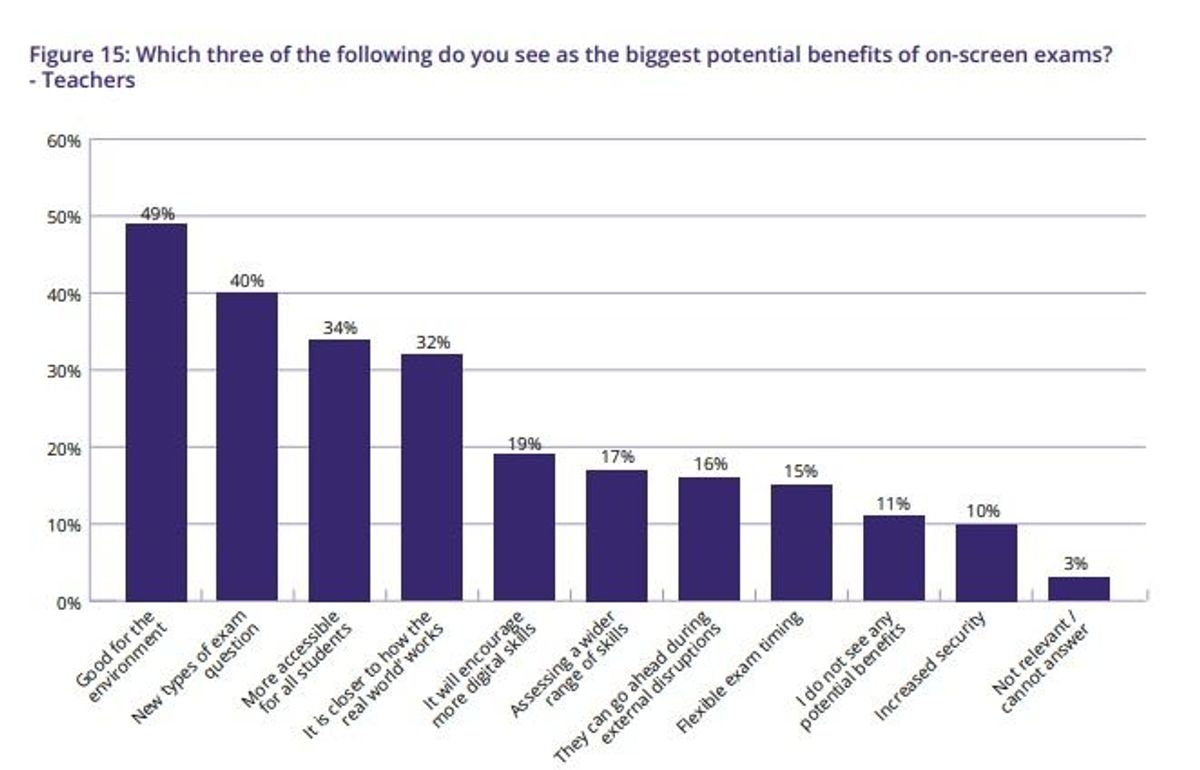
Digital exams are more inclusive
Digital exams are already used to help assess students with additional needs.
More than 114,000 computer readers or readers were approved for use in 2021/22. Moving exams on-screen means more students who need assistive technologies – such as the hearing or visually impaired - can get them.
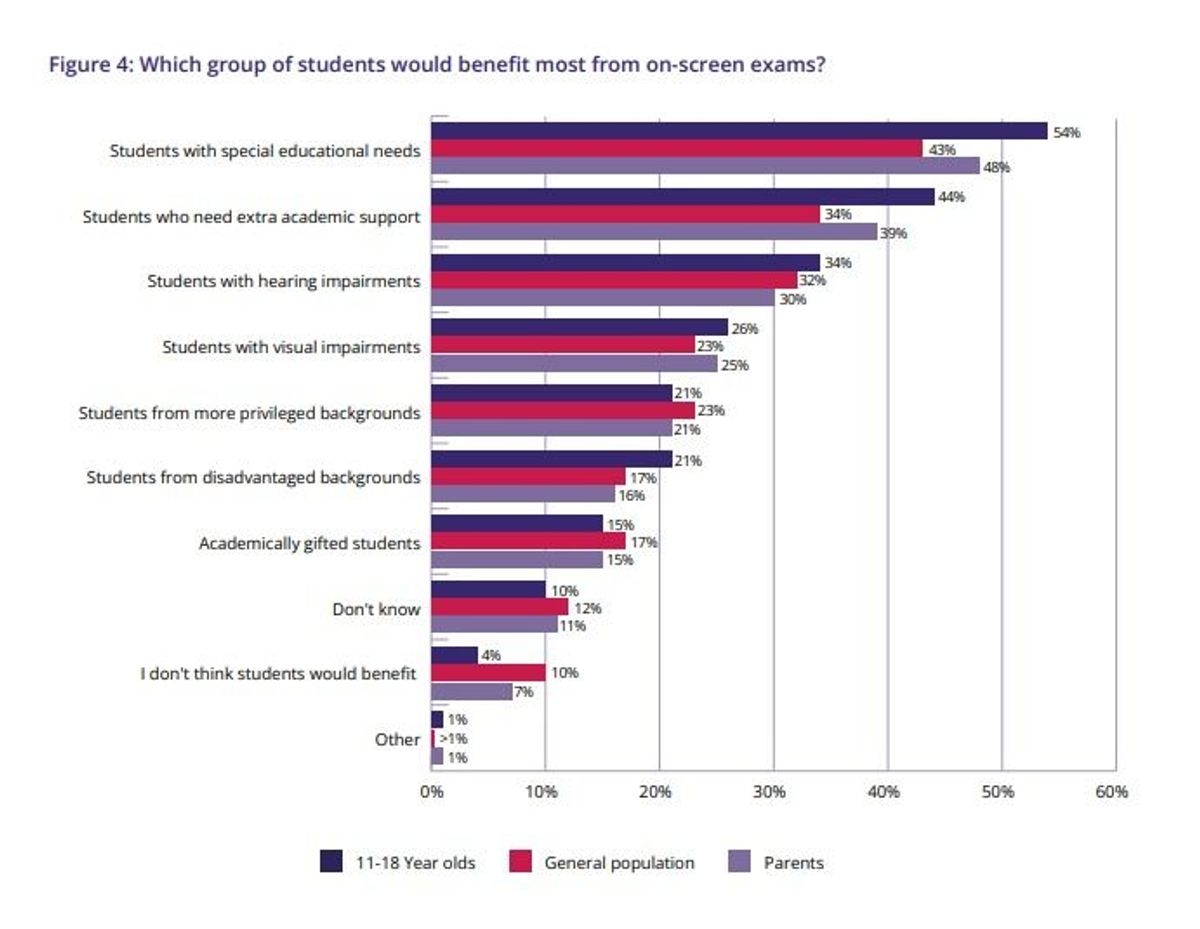
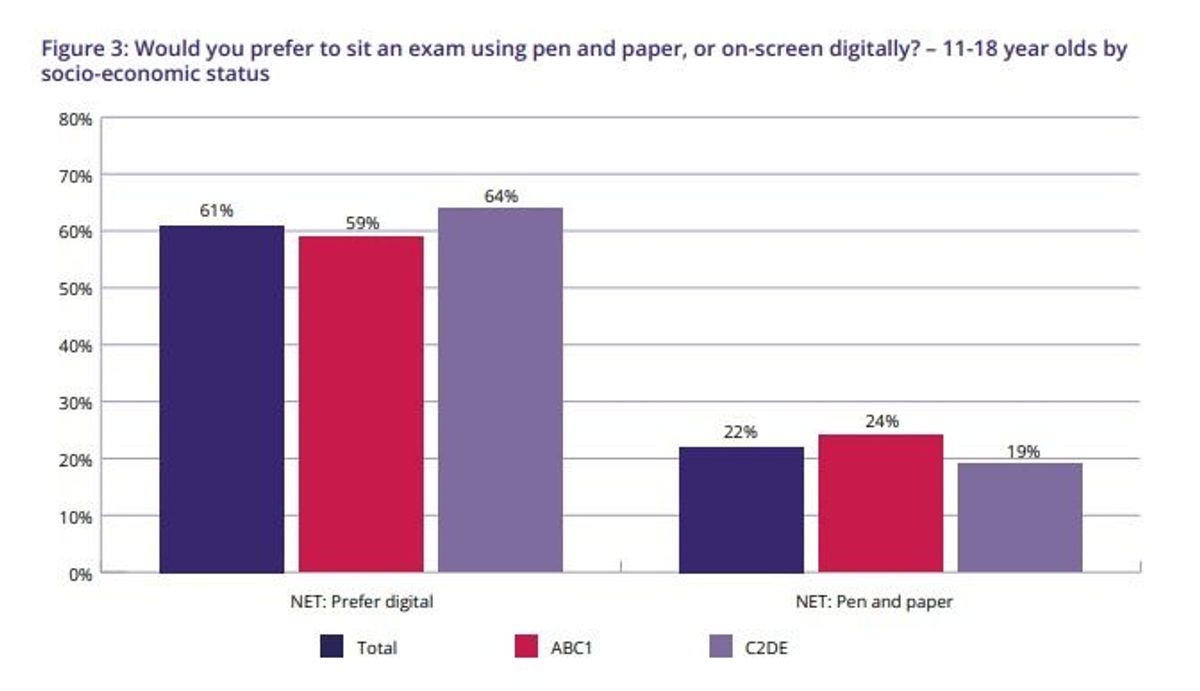
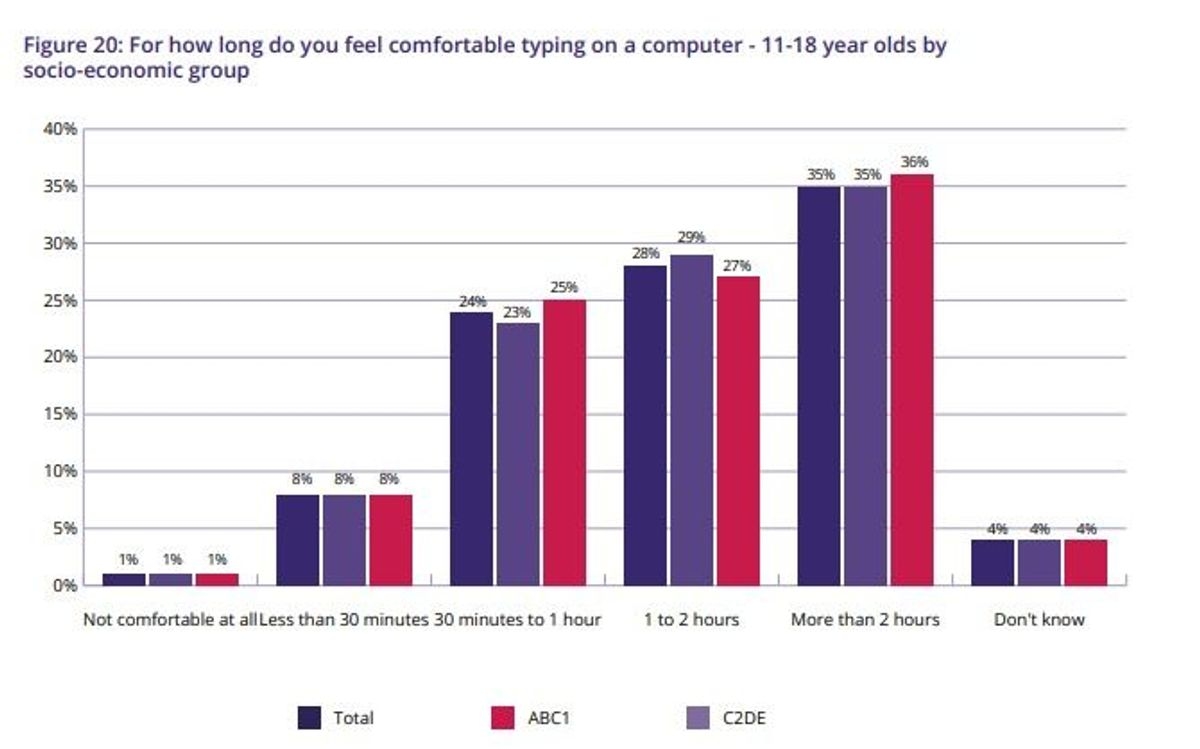
Digital exams are more environmentally sustainable
AQA works hard to ensure our exams are sustainable, but the fact remains that millions of exam papers need transporting across the country every exam season.
With energy coming from increasingly green sources, digitising exams could cut our carbon footprint and environmental impact.
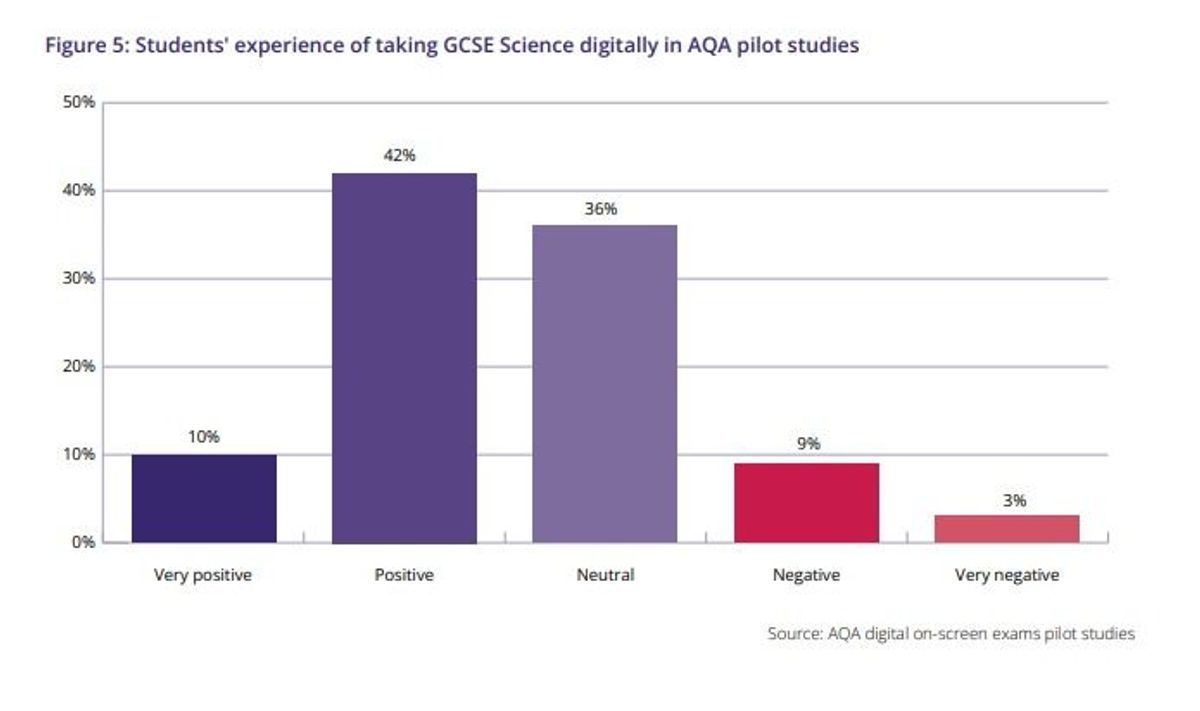
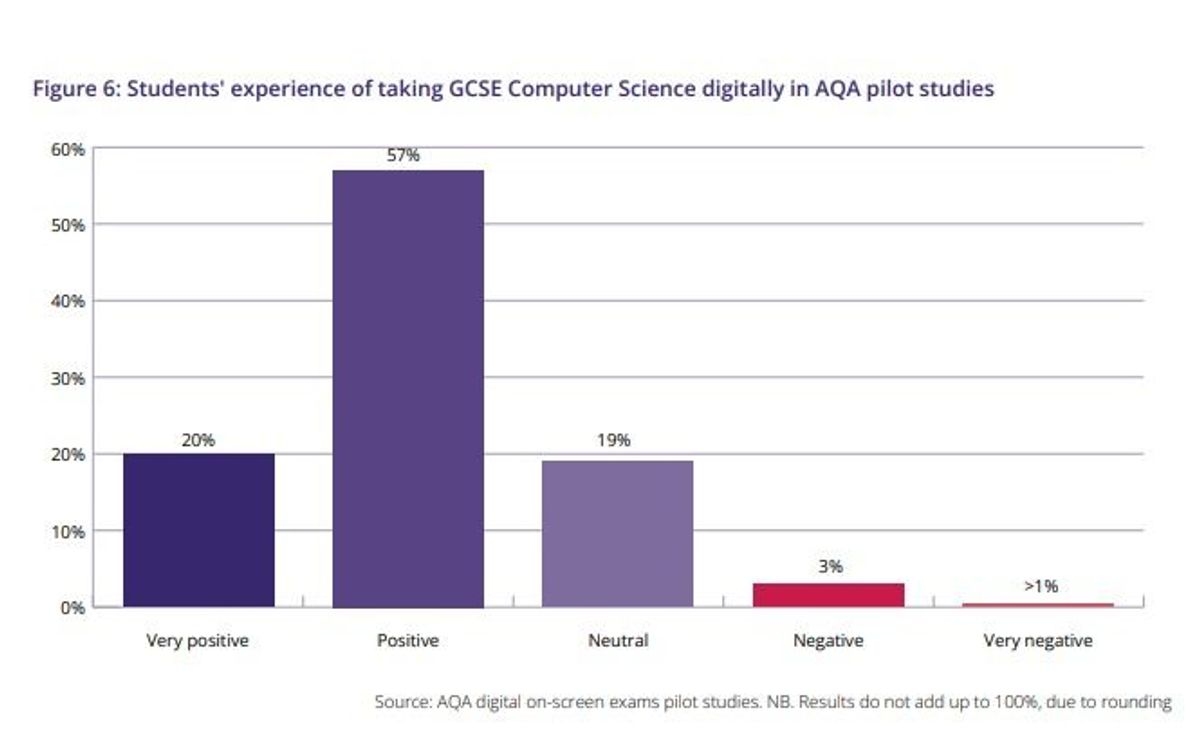
The longer term benefits
The benefits of digital exams already outlined can be realised in a relatively short amount of time. But they are also a gateway to a suite of longer-term benefits.
Adaptive, flexible assessments
Online adaptive assessments feed questions to the student tailored to their knowledge level. Correctly answered questions lead to more complex ones and vice versa. This can provide finely tuned feedback on their ability.
Increased efficiency and reduced teacher workloads
Digital assessments have tremendous potential to reduce teacher workload. Digital devices can auto-mark work and provide personalised insights on student strengths and weaknesses.
Improved resilience
Electronic examinations can be more secure by reducing the need for paper handling. They can also help flag up plagiarism more easily. Obviously, any digital system is vulnerable to hacking. We are acutely aware of the need for robust and secure IT infrastructure to ensure stability and reliability.
Implementation considerations and mitigations
There are of course many things to consider to ensure implementing digital exams is a success.
We need to make sure that no students are disadvantaged by prior access to laptops or digital devices.
There are also considerations around the infrastructure needed to deliver exams in schools – put simply, schools need electronic devices for students to sit digital exams.
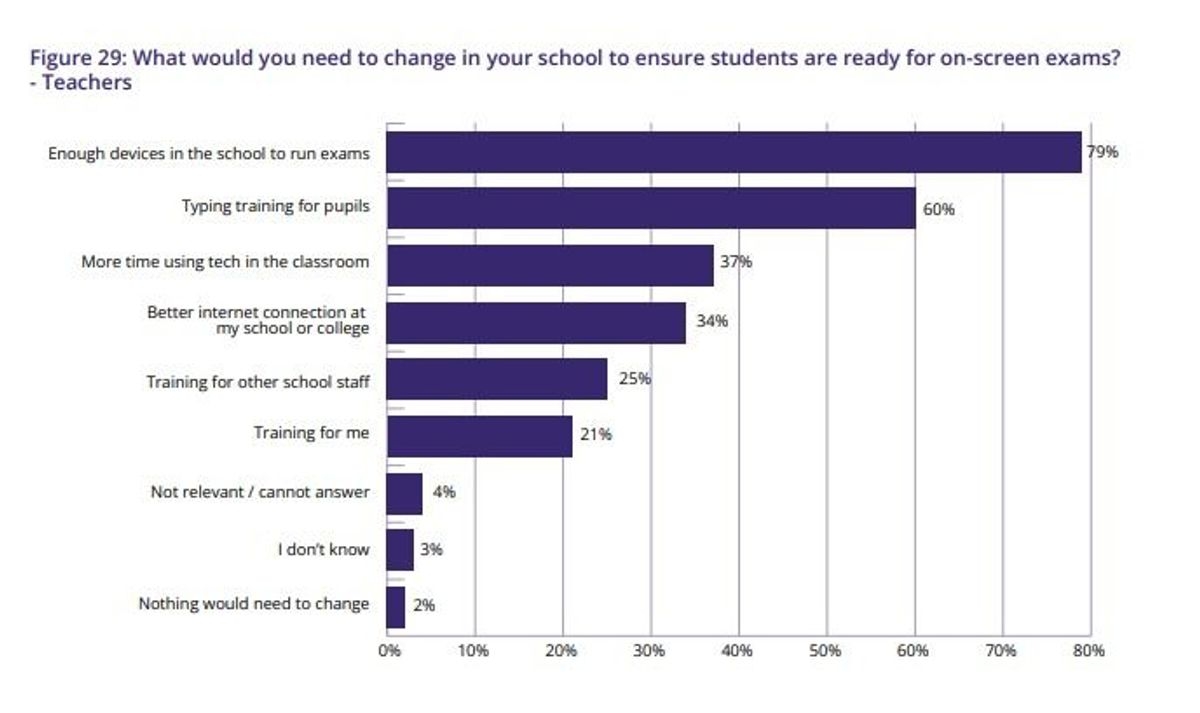
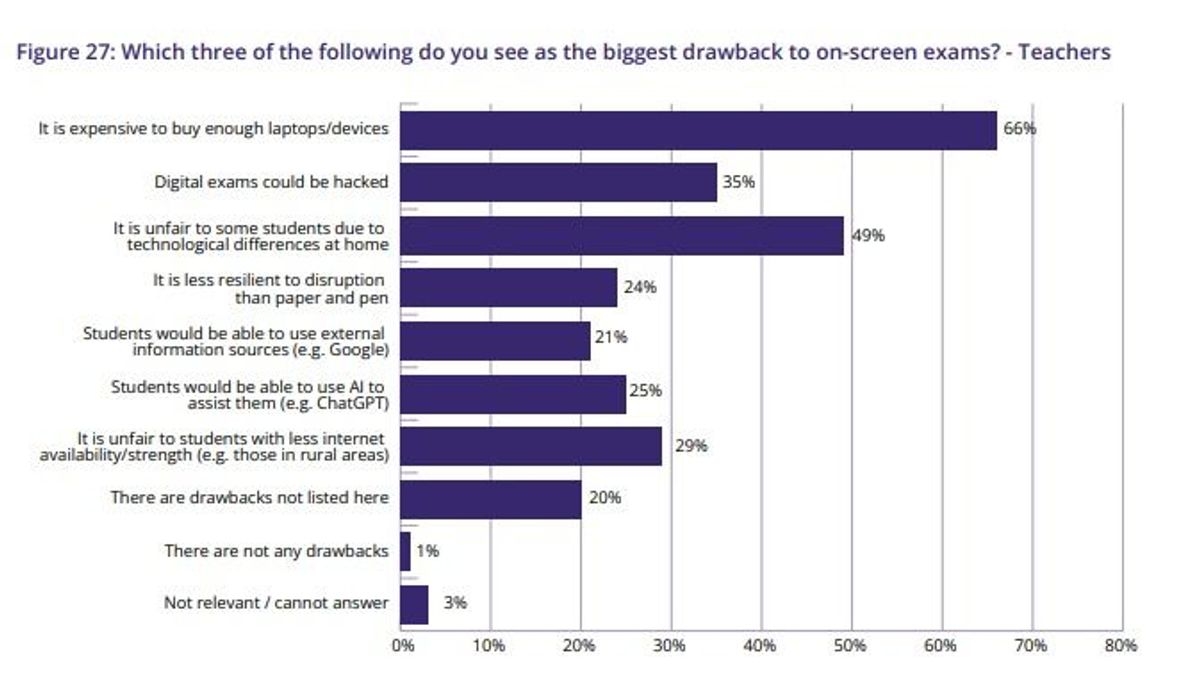
We also realise the need to take an evolutionary approach, not a revolutionary one, and allow sufficient time for these changes to take place without rushing.
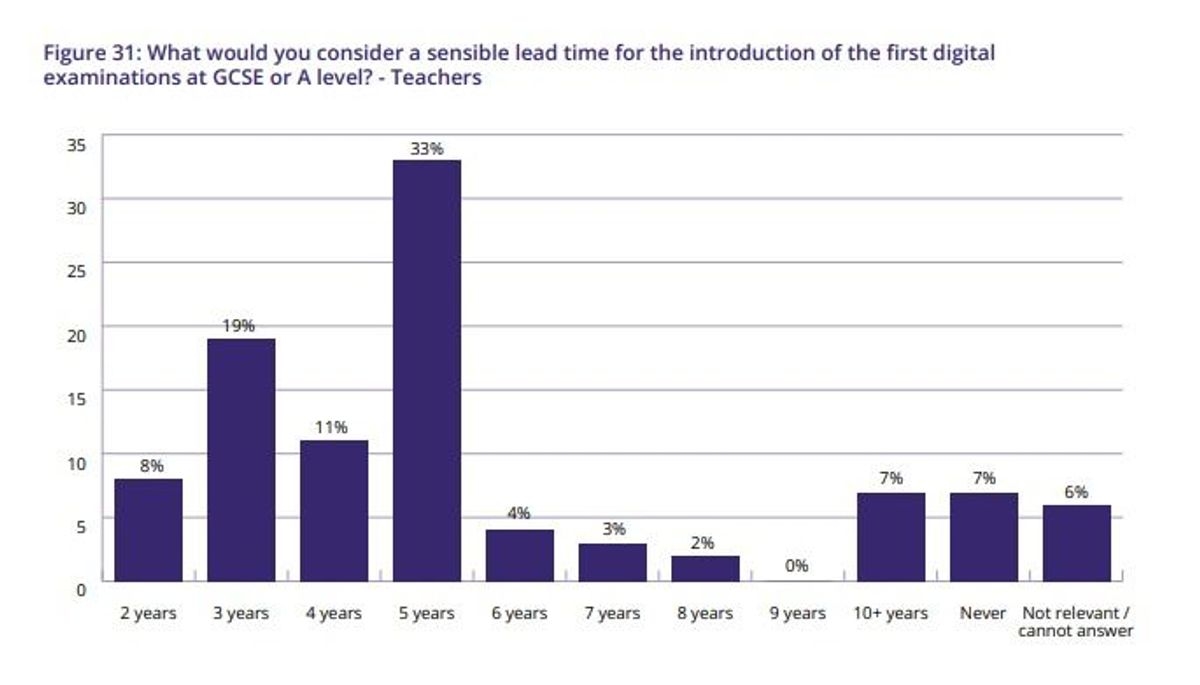
We are acutely aware of all of these factors and will be working hard to mitigate any risks as we move forwards.
Moving to a fully digital exam system is right for students and right for the education system.
As the nation’s leading exam board, we are profoundly aware of the immense responsibility that comes with making digital exams a success for the candidates, their teachers, and the education system.
We look forward to taking the next step in evolving our examination system and will be working closely teachers and students to make it a success.
To try out our demo online exam click here
Read more on this topic:
Adaptive Testing: Tailoring the future of assessments
Online exams - The robots are coming!
What do senior leaders think of on-screen assessment?









